 W
WAlexandre Delcommune was a Belgian officer of the armed Force Publique of the Congo Free State who undertook extensive explorations of the country during the early colonial period of the Congo Free State. He explored many of the navigable waterways of the Congo Basin, and led a major expedition to Katanga between 1890 and 1893.
 W
WFrancis Ernest Joseph Marie Dhanis was a Belgian colonial civil servant and soldier noted for his service for the Congo Free State during the Congo Arab War and Batetela Rebellion.
 W
WFrederik-Valdemar Olsen was a Danish soldier who became a general and commander in chief of the Belgian Congo Force Publique. He was born into a poor family, joined the Danish army, then in 1898 volunteered to serve in the Congo Free State. He rose quickly through the ranks, and in 1909–1910 played an important role in a stand-off with German and British forces disputing the eastern border of what was now the Belgian Congo. During World War I Olsen commanded a force that defended Northern Rhodesia against a German attack, then advanced from the south of Lake Kivu to take Tabora in what is now Tanzania. After the war he became commander of the Force Publique before retiring as a general in 1925. Olsen was then made general manager of the state-owned Congo River shipping line Unatra, later combined with railway lines to form Otraco. He retired from this position in 1947.
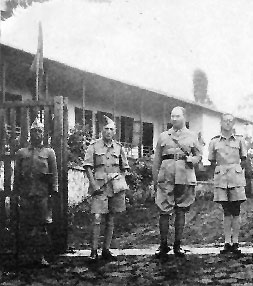 W
WAuguste-Édouard Gilliaert was a Belgian colonial soldier who served in both world wars, and a commander of the Force Publique in the Belgian Congo.
 W
WArmand Christophe Huyghé, later knighted Armand Huyghé de Mahenge, was a Belgian career soldier. He is best known for his service in the Belgian Congo during World War I, where he succeeded Charles Tombeur as commander of the Belgian forces in the East African Campaign in 1917. He commanded the Belgian contingent during the Allied occupation of the Rhineland after the war. During World War II, he was involved in the resistance and, after being captured by the Germans, was deported to Buchenwald concentration camp where he died in 1944.
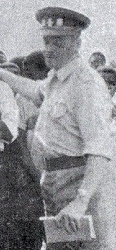 W
WÉmile Robert Alphonse Hippolyte Janssens was a Belgian military officer and colonial official, best known for his command of the Force Publique at the start of the Congo Crisis. He described himself as the "Little Maniac" and was a staunch disciplinarian, but his refusal to see Congolese independence as marking a change in the nature of his command has been cited as the immediate cause of the mutiny by the Force Publique in July 1960 that plunged Congo-Léopoldville into chaos and anarchy.
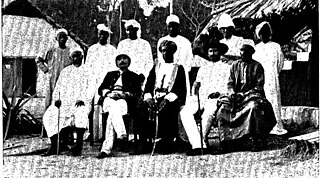 W
WJoseph François Lippens was a Lieutenant in the Force Publique of the Congo Free State during the Congo Arab War. He was killed by the soldiers of Sefu bin Hamid.
 W
WHubert Joseph Lothaire was a Belgian officer who served in the Force Publique of the Congo Free State. He started his military career as a lieutenant in the Belgian infantry, later he entered service in the Force Publique, where he commanded Congo Free State forces during the Congo Arab war. Lothaire was married to the sister of Francis Dhanis. On 7 May 1894, Captain Francis Dhanis returned to Europe and Lothaire assumed command of the Force Publique in the 'zone arabe' in his stead.
 W
WRichard Dorsey Loraine Mohun was an American explorer, diplomat, mineral prospector and mercenary. Mohun worked for the United States government as a commercial agent in Angola and the Congo Free State. During his time as commercial agent, he volunteered to command a unit of Belgian artillery in a campaign to force Arab slavers from the colony.
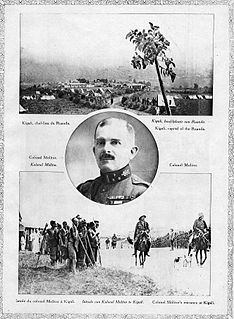 W
WPhilippe Molitor was a Belgian military officer. He is known for his role as commander of the Brigade Nord of the Force Publique, during the Tabora Offensive in the East African Campaign.
 W
WGeorges Brunon Joseph Marie Moulaert was a Belgian colonial administrator. He was deputy governor general of Équateur Province in the Belgian Congo from 1917 to 1919. Later he became a businessman, head of several large enterprises in the Congo, and director of others. He drew criticism for his forced recruitment of Congolese workers in the Kilo-Moto gold mines.
 W
WThorleiv Bugge Røhn was a Norwegian Army officer, who as a gymnast was a member of the team that won the gold medal in the team competition at the 1906 Intercalated Games in Athens, Greece.
 W
WLéon Auguste Théophile Rom (1859–1924) was a Belgian soldier and colonial official who became prominent in the administration of the Congo Free State during the late 19th century.
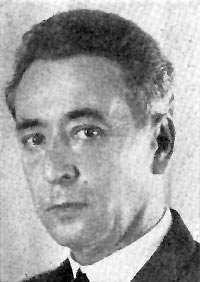 W
WPierre Ryckmans, was a Belgian civil servant who served as Governor-General of Belgium's principal African colony, the Belgian Congo, between 1934 and 1946. Ryckmans began his career in the colonial service in 1915 and also spent time in the Belgian mandate of Ruanda-Urundi. His term as Governor-General of the Belgian Congo coincided with World War II in which he was instrumental in bringing the colony into the war on the Allied side after Belgium's defeat in May 1940. He was also a prolific writer on colonial affairs. He was posthumously created a peer of the realm in the Belgian nobility with the rank of count in 1962.
 W
WLieutenant General Charles Tombeur was a Belgian military officer and colonial civil servant. As well as holding several major administrative positions in the Belgian Congo, he is particularly known for his role as commander of the Belgian colonial military, the Force Publique, during the first years of World War I. His military career culminated in the capture of Tabora in German East Africa in September 1916.
 W
WFrédéric Vandewalle was a Belgian colonel and diplomat in the Belgian Congo and independent Congo. He was an influential figure right before and after Congo's independence from Belgium. He was one of the organisers of the Katangese secession and led Operation Ommegang against the Simba rebellion during the Congo Crisis. His precise role in the assassination of Patrice Lumumba is the subject of debate among historians.